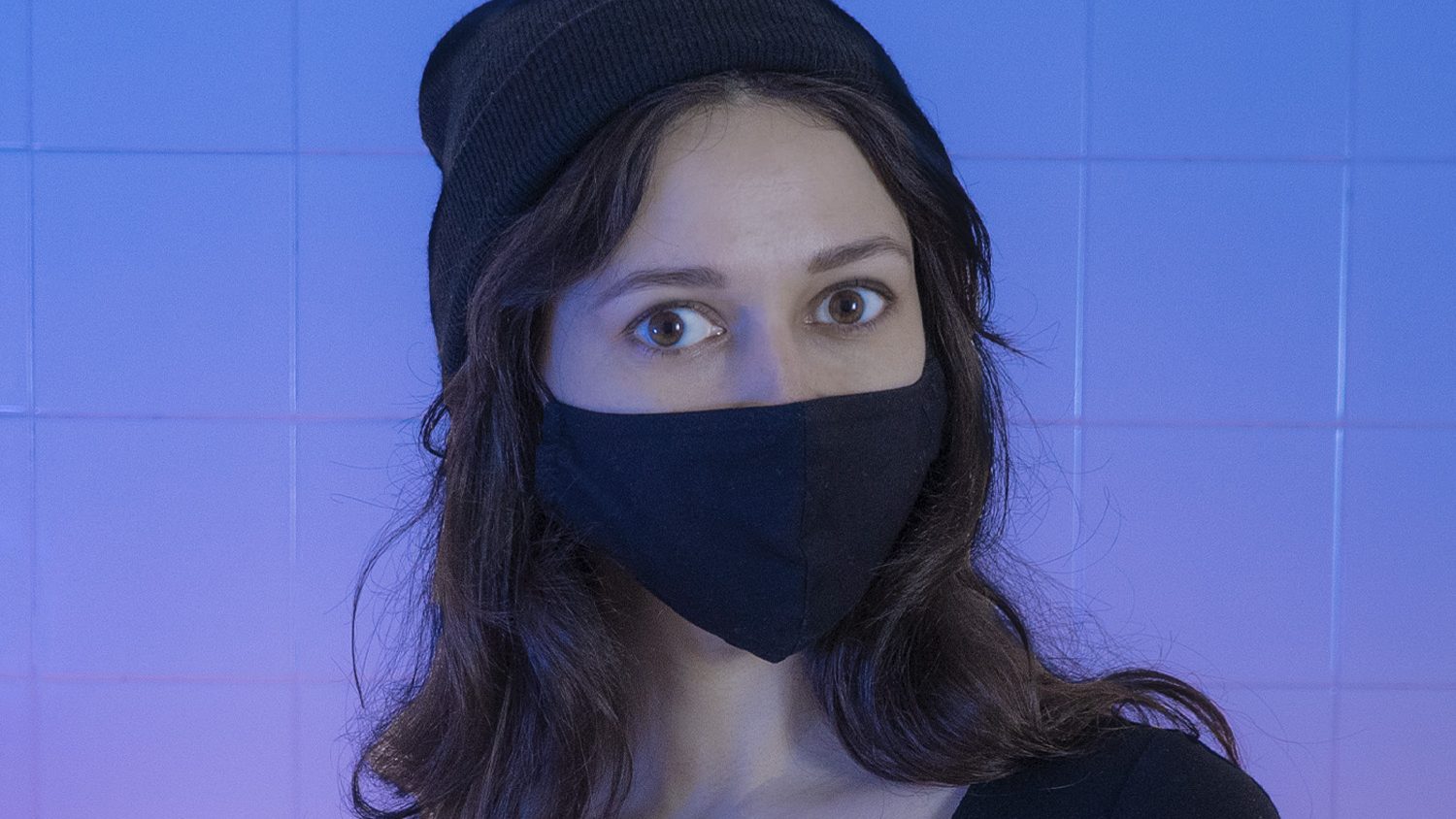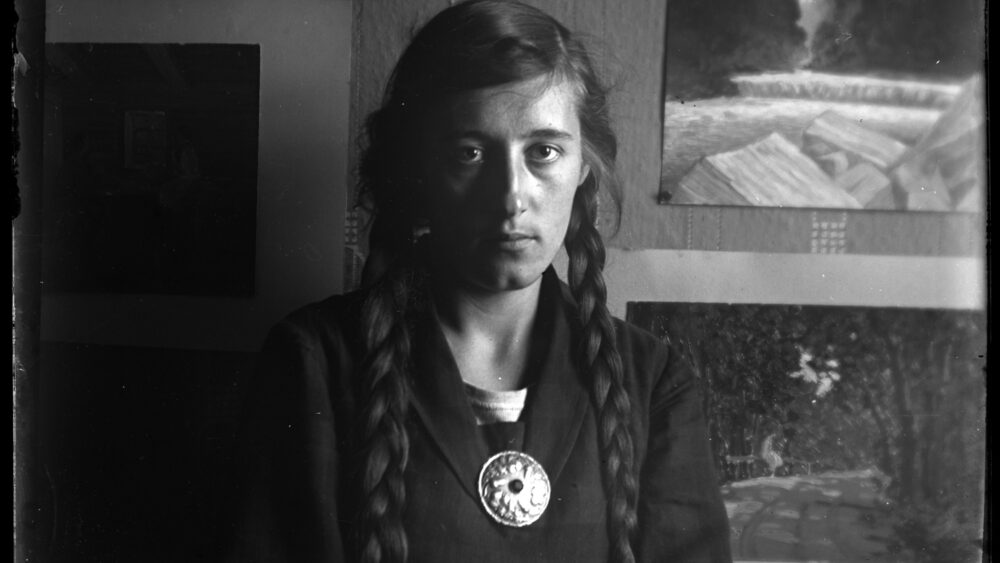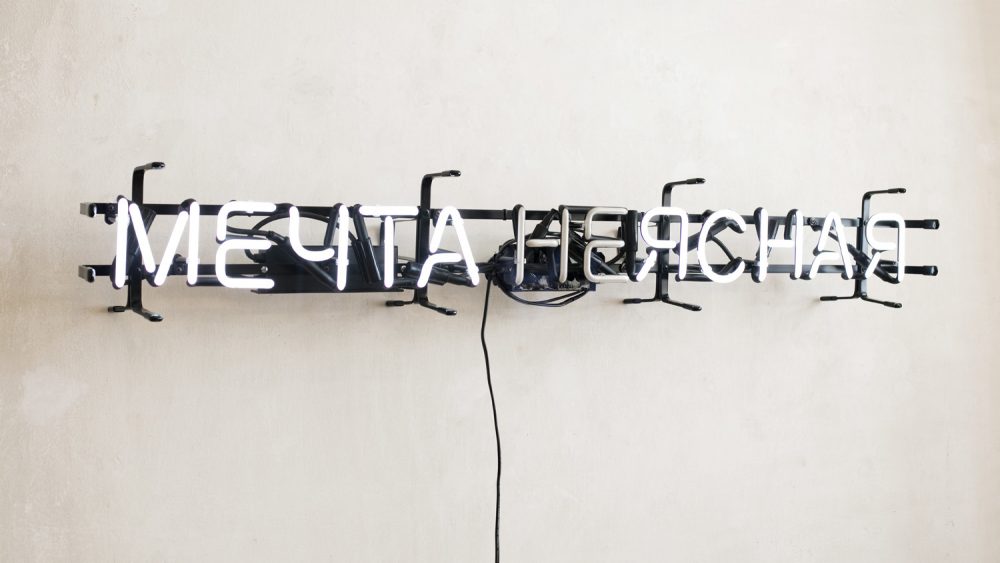10 minutes with Elvīra Blumfelde
Elvira Blumfelde is a photographer, director and graphic designer. She holds a Bachelor’s degree in film and TV directing and has studied fine arts in Finland. The artist creates various projects, including music videos, documentaries and art short films. She has participated in exhibitions both with her photos and installations.
Elvira Blumfelde’s project I Will Come Tomorrow will be show at the Riga Photomonth exhibition Life after Covid? that will take place on Avotu Street from May 24 until July 4. At these turbulent times when people struggle with anxiety and stress, the artist uses Tarot cards to help herself and her loved ones. This process has inspired the creation of a series of photographs.
Where did you get the idea for your project?
I always had to have everything planned – I needed to know what I was going to do tomorrow and next week; an unscheduled event or an unplanned event was stressful for me. But during this time I learned not to plan, not to cling to ‘when’ and to live more in the moment. In my opinion, knowing what will happen in the near or distant future gives us a sense of peace – people are afraid of the unknown, of sudden change, and when faced with a choice, they are afraid to make the wrong decision. Therefore, in order to have peace of mind, people turn to esoteric things.
In my work, I am inspired by Tarot cards, which are commonly used for divination. These cards depict beautiful, gorgeous images and scenes. I also personally use Tarot cards to help myself and my loved ones sort their minds and get rid of anxious thoughts.
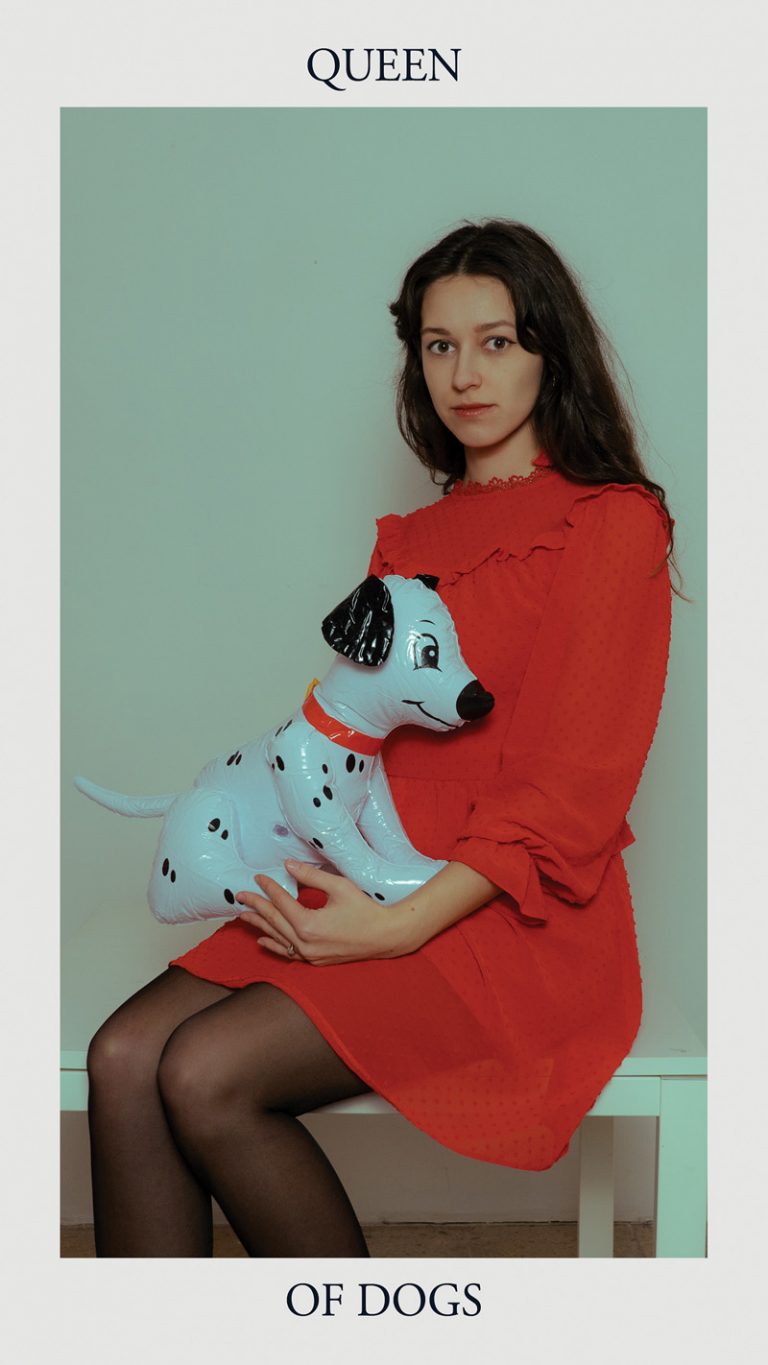
Do you like to play cards yourself?
Cards remind me of childhood. Phones were not so developed at that time, so we played cards often and everywhere – in camps, schools, trains, beaches, nature and while visiting someone. I remember there were even a couple of divination games that we used in an elementary school to learn the ‘name of the future husband’.
Ironically, I have used Tarot cards for divination less frequently since the beginning of the pandemic. Perhaps I have assumed that our lives cannot be predictable right now, and I am finally living in the present.
How would you describe your interest in photography?
All my previous personal works have been self-portraits. In the works of others, it is also interesting to observe how a person is able to transform himself into different images. By nature, I am an introvert, but creating self-portraits is an intimate process through which one can learn to accept oneself and become bolder with each photograph.
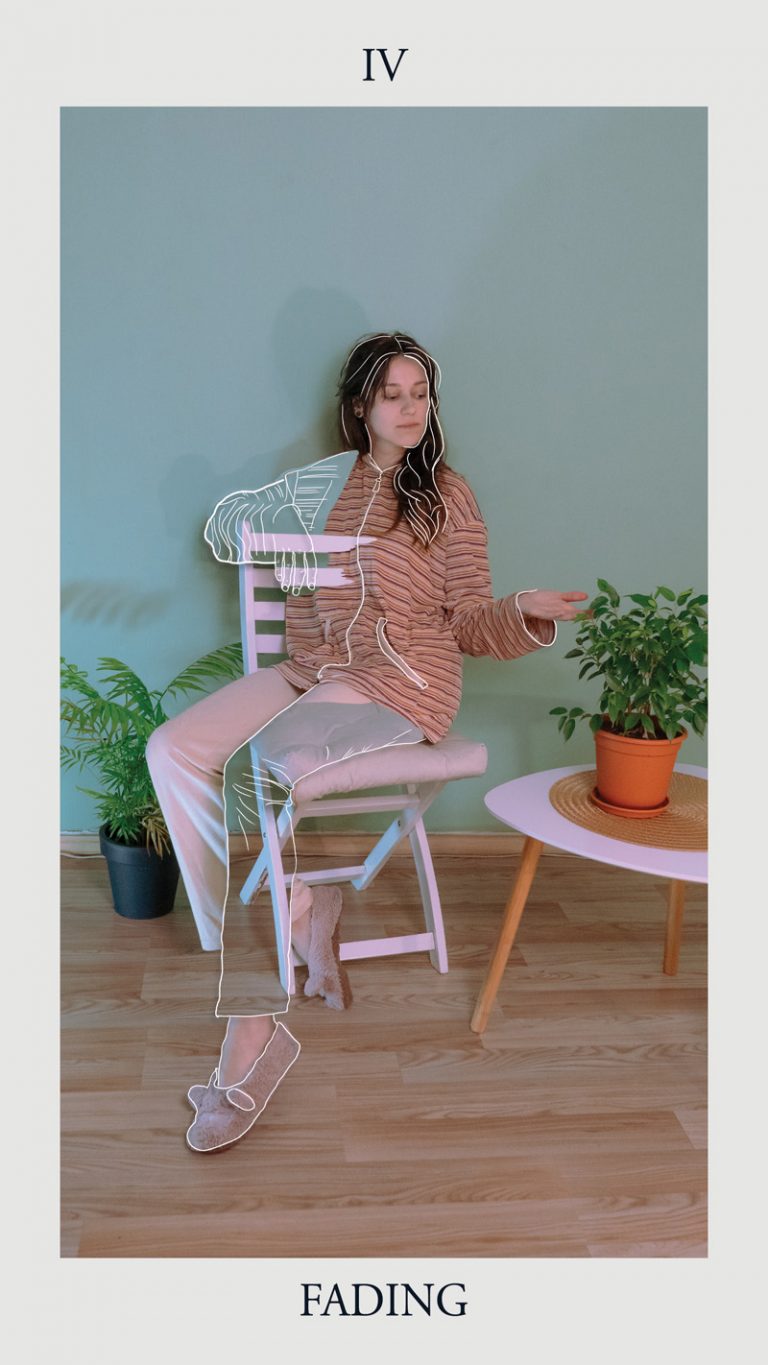
What do you like and dislike most about the COVID era?
With each passing day in a pandemic, I feel that the mind is becoming more and more anxious. We feel fear and anxiety about our health, family, work, life in a pandemic in general, in which we cannot predict or plan even the near future. Although my daily routine is very active, anxiety is already a constant background condition that never allows me to relax.
However, the time of the pandemic has allowed us to give in to the moment, to devote much more time to myself and my personal goals, to focus on my well-being and mental health, spend more time on nature, photography and art in general. My rhythm of life has become much slower and healthier, I have finally learned to allow myself to move and relax, because I don’t have to hurry anywhere and I don’t have to be anywhere.
What are your immediate creative plans?
Currently I am very actively working on exhibition work within the ISSP School. Together with some other charming artists, we will open, in my opinion, a very interesting and very versatile exhibition. Initially, the exhibition was planned for the end of May, but we decided to wait until we can fully open it, meet in person and celebrate what we have done, so the dates of the exhibition have been postponed.
